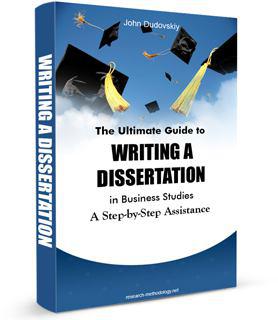Futures Research
Futures research can be defined as a systematic study of possible future events and circumstances. As a field of study, futures evolved in 1950s. Futures research is different from forecasting in a way that the former has a forward orientation and looks ahead, rather that backwards, and is not as mathematical as forecasting.
It can be argued that highly dynamic nature of the contemporary global marketplace is making is difficult to conduct quality futures studies. For example, it is now evident that COVID-19 global pandemic has compromised findings of many futures studies. This is because no researcher could foresee the occurrence of extent of implications of pandemic on global business and economics.
Disadvantages of futures research are straightforward – no event or situation can be forecasted in an accurate and complete manner. Nevertheless, futures studies may offer a substantial advantage. Specifically, although futures studies are not able to produce totally accurate and complete information about the future, some researched information about the future is better than no information at all when engaging in decision making for long-term perspective.
There is wide range of techniques available that can be used to conduct futures studies. The following table illustrates types and techniques of the most popular futures techniques.
| Method | Quantitative | Qualitative | Normative | Exploratory |
| Agent Modeling | ü | ü | ||
| Complexity based models | ü | ü | ||
| Cross Impact Analysis | ü | ü | ||
| Decision Models | ü | ü | ||
| Delphi | ü | ü | ü | |
| Econometrics | ü | ü | ||
| Environmental Scanning | ü | ü | ||
| Futures Wheel | ü | ü | ü | |
| Genius Forecasting | ü | ü | ü | |
| Morphological Analysis | ü | ü | ||
| Participatory Methods | ü | ü | ||
| Regression | ü | ü | ||
| Relevance Trees | ü | ü | ||
| Scenarios | ü | ü | ü | ü |
| Science Road Maps | ü | ü | ||
| System Dynamics | ü | ü | ||
| Tech Sequence Analysis | ü | ü | ü | |
| Time Series Forecasts | ü | ü | ||
| Trend Impact Analysis | ü | ü |
Futures research methods techniques
Source: Millenium Project
The nature of decision-making using the results of futures studies can be approached from four alternative perspectives:
1. Values perspective categorises forecasted outcome of events and occurrences as good or bad. Accordingly, value perspective tends to be highly subjective due to value differences amongst individuals.
2. Rational perspective relates to selection of an alternative amongst decision options guided by the extent to which each alternative meets certain criteria.
3. Judgement heuristics is associated with tendency towards risk-taking and relying on intuition when engaging in decision making.
4. Cognitive science perspective to decision making relies on inductive process of thought and taking decisions as a result of inductive analysis by individuals, as well as, related computer programs.
If you decide to conduct a futures research for your dissertation you will have to choose a specific method from table above. You will need to discuss advantages and disadvantages of the method selected and also provide rationale for the choice.
My e-book, The Ultimate Guide to Writing a Dissertation in Business Studies: a step by step assistance contains discussions of theory and application of research philosophy. The e-book also explains all stages of the research process starting from the selection of the research area to writing personal reflection. Important elements of dissertations such as research philosophy, research approach, research design, methods of data collection and data analysis are explained in this e-book in simple words.
References
[1] Source: Millenium Project

